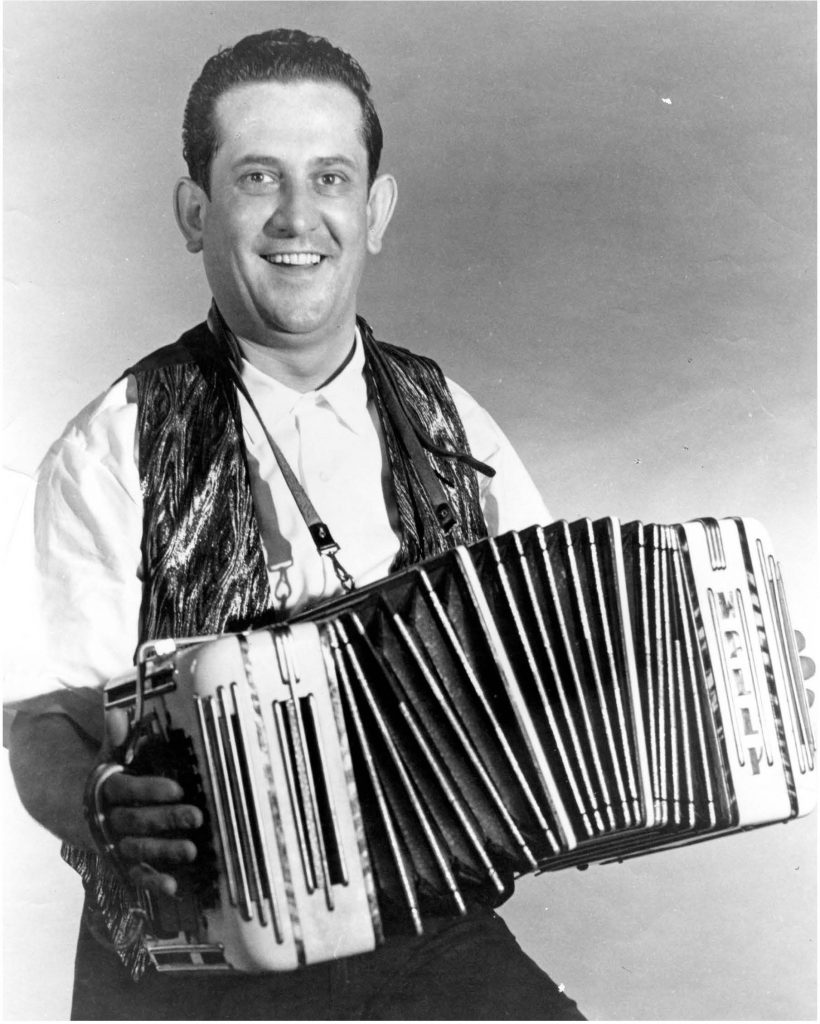Get to Know the Polka King: Read an Excerpt from “American Warsaw”
We may have missed National Polka Day (August 9) and National Accordion Awareness Month (June), but that doesn’t mean we can’t celebrate a Polka legend any time of the year. And since October is Polish American Heritage Month, it seemed the perfect time to talk about Li’l Wally
Jagiello, the Polka King, a favorite performer and icon of Polish Chicago. We’ll let Dominic A. Pacyga tell the story in this piece from his new book American Warsaw: The Rise, Fall, and Rebirth of Polish Chicago.

“Walter Jagiello, known as Mały Władziu to his Polish American fans, was born and raised in Chicago. He began playing and singing polka music at the age of eight and started his career on Division Street in those same bars that Algren wrote about, places like the Gold Star, the Midnight Inn, Phyllis’s, Zosia’s, Al’s Village Inn, the Orange Lantern, and the Lucky Stop. Roughly sixty taverns lined Division Street in Polonia, and most offered live music. A consummate performer, Li’l Wally performed nearly nonstop his entire career. His 1956 hit “I Wish I Was Single Again” was on the top 40 charts, a rarity for a polka recording. Jagiello was one of the first inductees into the Polka Hall of Fame. While Polish American elites and non-Poles may have dismissed Jagiello and his music, he, Eddie Zima, Marion Lush, Eddie Blazończyk, and many others made Polish Chicago sing and dance. In 1959, Jagiello cowrote the Chicago White Sox anthem “Let’s Go, Go-Go White Sox” to honor the team’s American League championship drive. He married a young South Side woman known to Polish American radio audiences as “Polka Jeanette.” Jeanette Kozak was raised in Sacred Heart Parish in Back of the Yards of immigrant parents.
In the 1950s, Li’l Wally emerged as the greatest representative of Chicago-style polka, which featured a slower beat, clarinet, trumpet, and a driving concertina. The style was improvisational and had an urgency of expression that communicated with its audience. It derived from Polish village music that had become popular in Chicago in the 1920s and always stayed true to its roots. Jagiello’s records sold astonishingly well given the fact that at first local radio shows shunned the recordings. Li’l Wally eventually took his band on the road throughout what some called the Polka Belt of the Midwest and East Coast. He created his own record label, Jay-Jay Records, and continued his success. The Chicago style kept evolving, absorbing new influences and reaching the heights of polka popularity in the early 1960s. If anyone can be credited with writing, playing, and promoting the music that made Chicago’s Polonia dance, it was Mały Władziu and his wife and business partner, Polka Jeanette.”
American Warsaw is available from our website or your favorite bookstore.